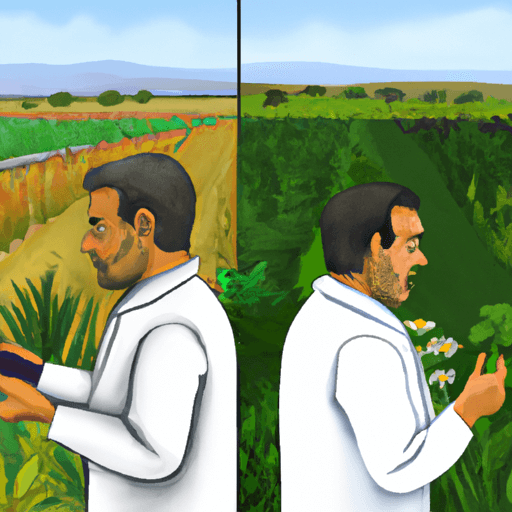The Impacts of Genetically Modified Crops on Organic Farming and Food Nutrition: An In-Depth Analysis
In this era of technological advancements, genetically modified (GM) crops are steadily gaining momentum in the global market. However, their impact on organic farming and food nutrition cannot be overlooked. This article aims to provide a comprehensive analysis of the effects of GM crops on the organic farming industry and their nutritional differences with organically grown produce.
Impact on Organic Farming
Economic Influence
The introduction of GM crops has been reported to offer significant economic benefits for farmers. A 2010 study by Graham Brookes and Peter Barfoot indicated that farmers who adopted GM crops gained an additional income of $14 billion [1]. However, this economic advantage may simultaneously pose a threat to the organic farming industry that could be outcompeted due to the potential higher yield and lower costs of GM crops.
Potential Cross-Contamination
Cross-contamination is a major concern within the organic farming sector. Despite stringent regulations, GM crops' pollen can travel up to miles, leading to contamination of organic crops [2]. This might lead to the inadvertent growth of GM crops amidst the organically grown ones, thereby compromising the organic status of the crops.
Nutritional Differences
While GM crops promise enhanced agricultural productivity, the potential impact on nutritional quality raises significant concerns. Studies suggest that nutrient levels in GM crops tested, including proteins, minerals, and vitamins, are not significantly different from traditionally bred crops [3]. However, certain genetically modified foods have been developed to be nutritionally superior, such as Golden Rice which has elevated levels of vitamin A[4].
Future Prospects & Challenges
Advancements in genetic engineering have opened new vistas for developing more resilient and nutritionally enhanced crops. However, potential risks to biodiversity, organic farming, and nutritional quality remain areas of concern. The challenge lies in balancing the pros and cons in a manner that progresses towards a sustainable and healthy food supply system.
Conclusion
Depending on both perspectives and local circumstances, GM crops can be seen as a threat to or an opportunity for organic farming. If we can navigate those concerns and turn them into opportunities, GM crops and organic farming could work together to build a food-secure future.
References
[1] Brookes, G., & Barfoot, P. (2010). Global income and production impacts of using GM crop technology 1996-2014. GM Crops & Food, 1(4), 265-272.
[2] Rieger, M. A., Lamond, M., Preston, C., Powles, S. B., & Roush, R. T. (2002). Pollen-mediated movement of herbicide resistance between commercial canola fields. Science, 296(5577), 2386-2388.
[3] Nicolia, A., Manzo, A., Veronesi, F., & Rosellini, D. (2014). An overview of the last 10 years of genetically engineered crop safety research. Critical Reviews in Biotechnology, 34(1), 77-88.
[4] Beyer, P. (2010). Golden Rice and 'Golden' crops for human nutrition. New Biotechnology, 27(5), 478-481.




















Comments
Leave a Comment